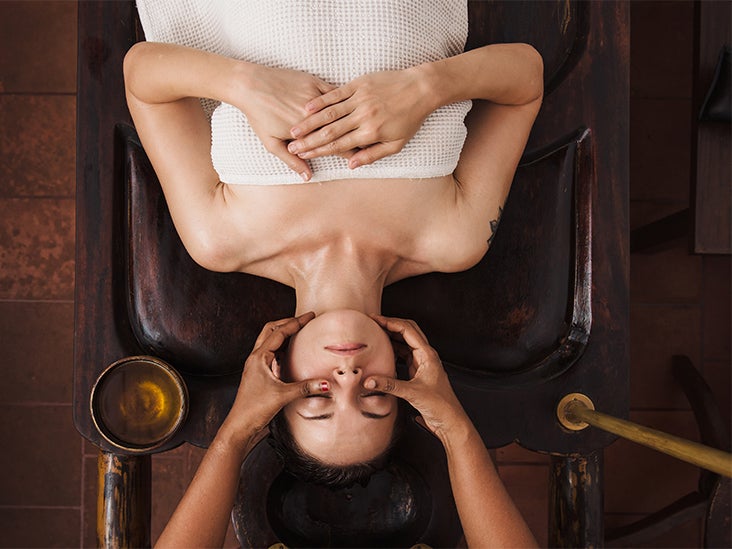Medically reviewed by Debra Sullivan, Ph.D., MSN, R.N., CNE, COI — Written by Kirsten Nunez
May 18, 2020
Ayurveda is a form of traditional medicine that originated in India and has been practiced for thousands of years. It uses a holistic approach for treating health problems, including eczema and other skin disorders. This means it considers the body, mind, and spirit when managing health issues.
In Ayurveda, it’s believed that each person has three energies, or doshas. These doshas include vata, pitta, and kapha energies. Each dosha controls specific bodily functions. According to Ayurvedic medicine, your doshas must be in balance to maintain good health.
Eczema is thought to occur when your doshas are out of balance. Thus, the purpose of Ayurveda is to balance them through natural treatments. It also aims to purify the body, which is said to remove toxins that cause eczema symptoms.
Read on to learn about Ayurvedic eczema treatments, along with the potential side effects and benefits.
Panchakarma therapy
In Ayurvedic medicine, eczema is mainly treated with Panchakarma therapy. This method is also used for other skin conditions like psoriasis and acne.
You’ll need to visit an Ayurvedic practitioner to receive Panchakarma therapy. It may include treatments and procedures like:
- consuming medicated ghee for 5 to 7 days
- whole body oil massage
- inducing sweating
- inducing purging and vomiting
These treatments are meant to help eczema by removing toxins and supporting the immune system.
Ayurvedic herbal remedies
Ayurvedic treatment also involves consuming various herbs. You can add them to cooked food, drink them as tea, or take them as supplements.
If you’d like to consume supplements, work with your Ayurvedic practitioner to make sure you’re taking the right amount. Also, some herbs and drugs may negatively interact, so it’s important to follow your practitioner’s instructions.
Be sure to also follow up with your other healthcare providers, such as your doctor or pharmacist, about interactions with any prescription medications or supplements or herbs you take.
The following herbs are used to treat eczema symptoms:
- cardamom
- turmeric
- triphala
- neem
- Indian sarsaparilla
Since stress can trigger eczema symptoms, you can also take Ayurvedic herbs that support the nervous system. Examples of these herbs include:
- kava kava
- winter cherry
- brahmi
Dietary changes
An Ayurvedic treatment plan for eczema also includes dietary changes. Typically, it’s recommended to eat a plant-based diet rich in whole and unprocessed foods. The ideal diet for eczema also includes foods high in:
- essential fatty acids
- zinc
- vitamin A
- vitamin C
These nutrients are said to reduce eczema symptoms.
Treatment also includes drinking lots of fluids. Licorice tea and aloe vera juice are among the drinks that are recommended.











